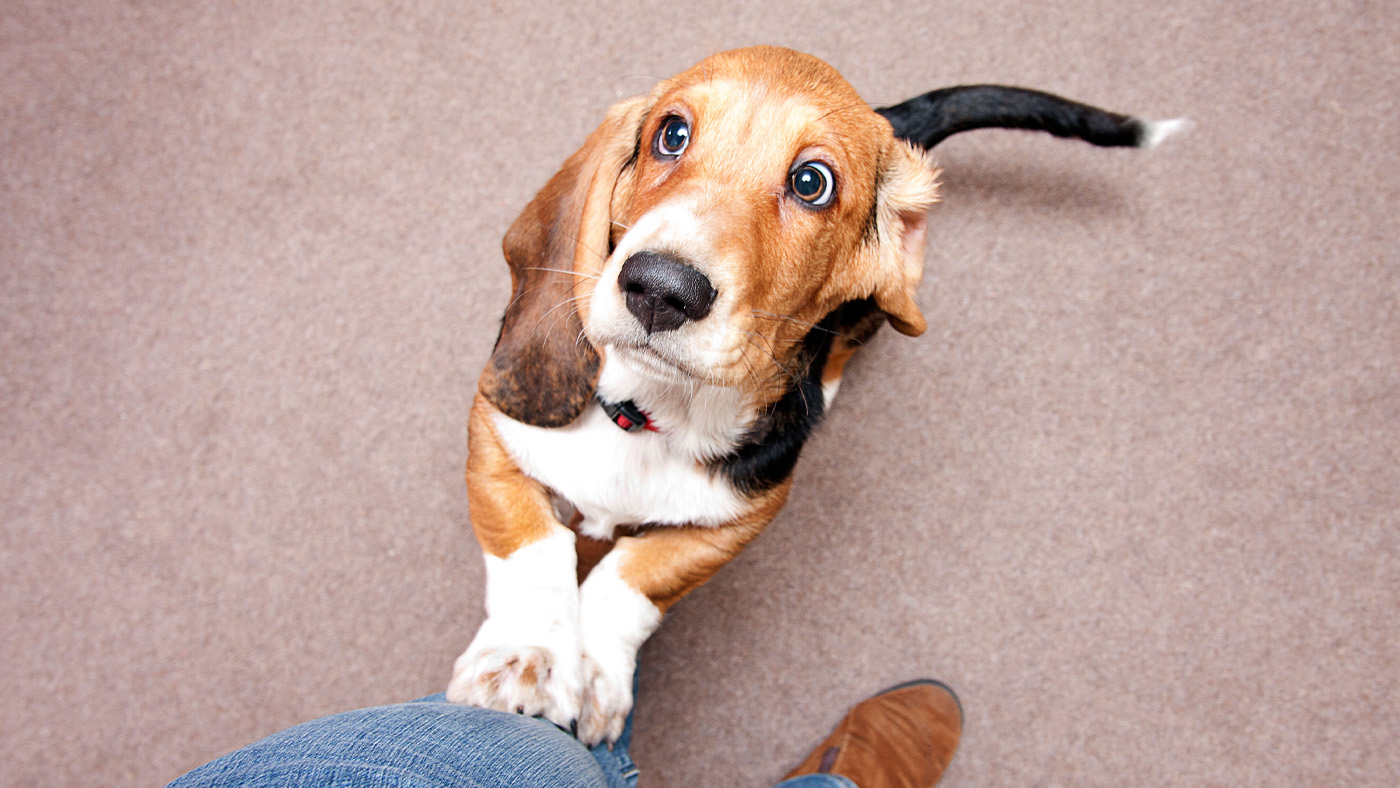Why does my dog lick the bed?
Does your dog lick the bed? From anxiety to illness, we’re uncovering the reasons behind this strange behavior.
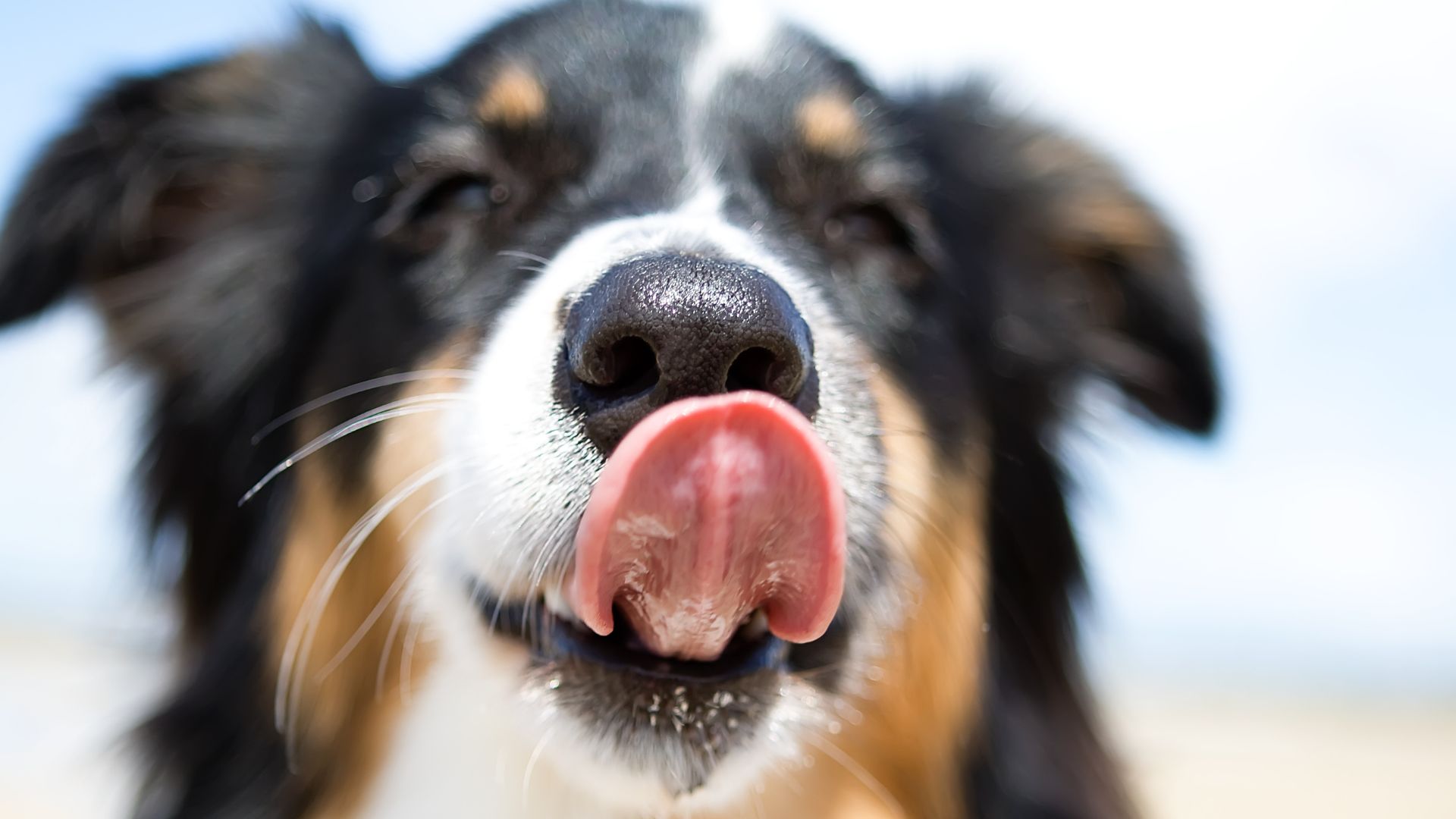
As a pet parent, you’ve no doubt seen your dog licking their food bowl, themselves, perhaps your hands or face… but when you see them licking furniture or their own bed you might be wondering “why does my dog lick the bed”?
There are a variety of reasons why your dog may lick the bed. The reason behind the behavior might be innocent and ‘normal’ for your dog, but if this is a new behavior the first stop should always be to speak to your vet in case there’s an underlying health issue.
As a Certified Canine Behaviorist, I see dogs presenting in my practice with various licking behaviors - from people, to walls, to other dogs, and their own bodies. Sometimes these licking behaviors can be classed as obsessive - where the dog has a need to lick things on a regular basis. But when you’ve gone to the trouble of making sure that your dog has got the best dog bed, you might then wonder why they would want to lick it?
Why do dogs lick their bed?
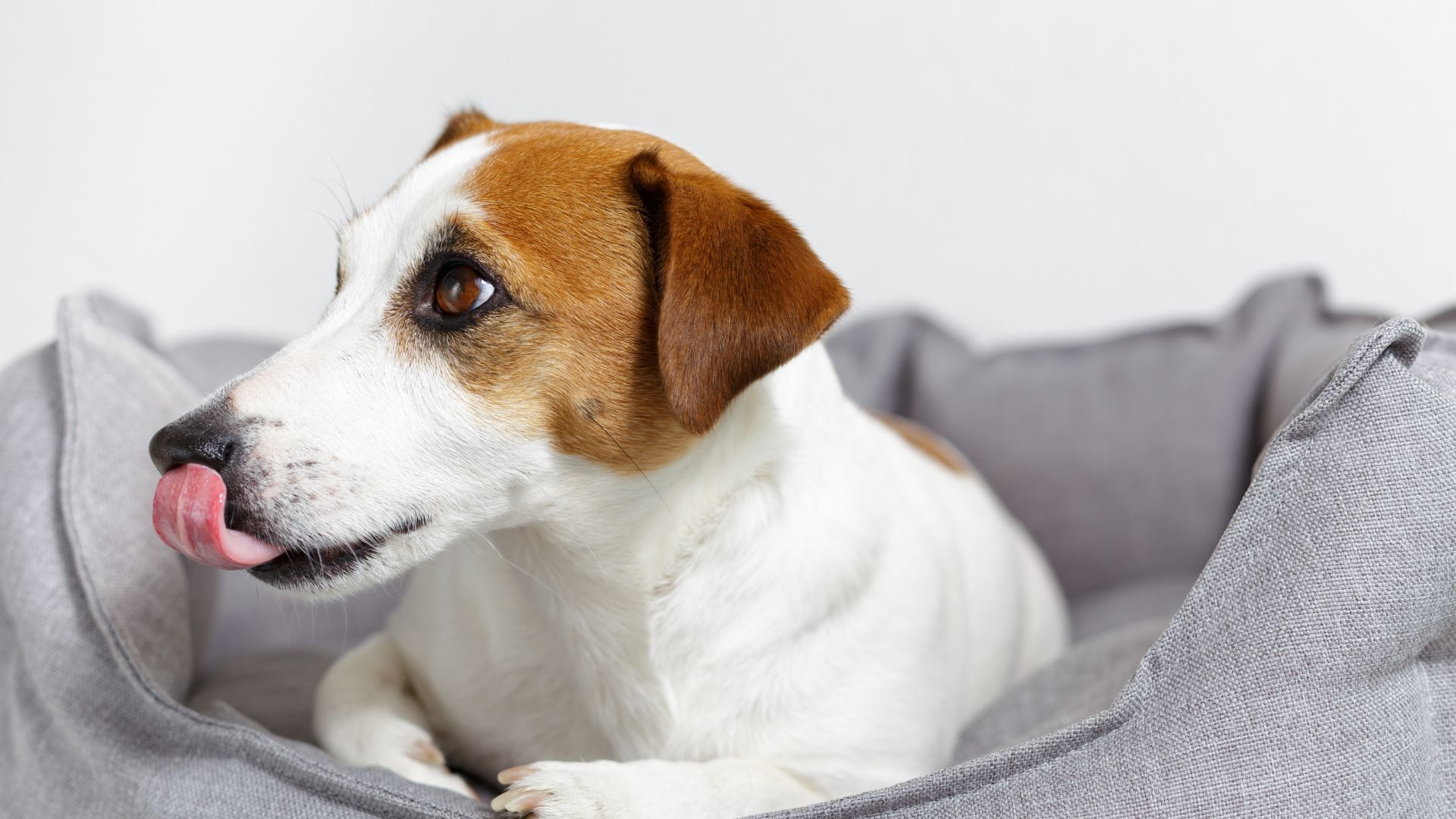
1. Comfort and security
Licking their own bed might provide a soothing feeling for some dogs, similar to how they may groom themselves or a companion. The repetitive action can be quite comforting on its own but even more so if the bed smells like a human or canine companion, as they get to enjoy those scent particles at the same time. If your dog is sucking on the blanket too, this may stem from puppyhood when licking and sucking provided food from their mother.
2. Stress and anxiety
Some pooches may lick objects, including beds, as a coping mechanism for anxiety or stress. The repetitive motion can help them self-soothe in times of anxiety in dogs - which can help provide temporary relief from the emotions they’re experiencing. You may see this behavior occurring more frequently at the end of a busy day, when your dog is trying to process their experiences, or when your dog is left home alone and struggles with separation anxiety.
It’s not just licking that can occur when your dog is stressed. Anxiety can be displayed in all sorts of ways, from increased barking, reduction in enjoyment of usual activities, and poor rest and relaxation. If your dog has started showing any signs of anxiety or you’re wondering ‘why is my dog sleep barking?’ then it’s important to seek out professional help from your vet and an ethical dog behaviorist.
3. Illness or underlying health concern
Excessive bed licking could be a sign of an underlying medical problem. While we know that dogs suffering from any form of pain will often lick their own body, this licking can be transferred onto other objects to help create feel-good hormones in their body which can reduce feelings of pain.
PetsRadar Newsletter
Get the best advice, tips and top tech for your beloved Pets
According to a study in the Journal of Veterinary Behavior, GI [gastrointestinal] disease should be considered in dogs that are excessively licking surfaces. It could also be linked to allergies or skin issues.
4. Boredom
When left without the right amount of physical activity and mental stimulation, dogs can become bored. This is when we often see what we might deem as ‘naughty’ behaviors occurring such as digging, barking, or trash-raiding. But bored dogs can also perform repetitive behaviors such as pacing or licking objects.
5. Curiosity
As dogs use their sense of smell and taste to explore their surroundings - without having hands to pick up and touch objects - the licking of a bed may be down to simple curiosity. Licking and sniffing allows our dogs to gather information about the surroundings - perhaps learning who else had laid on that bed before you bought it.
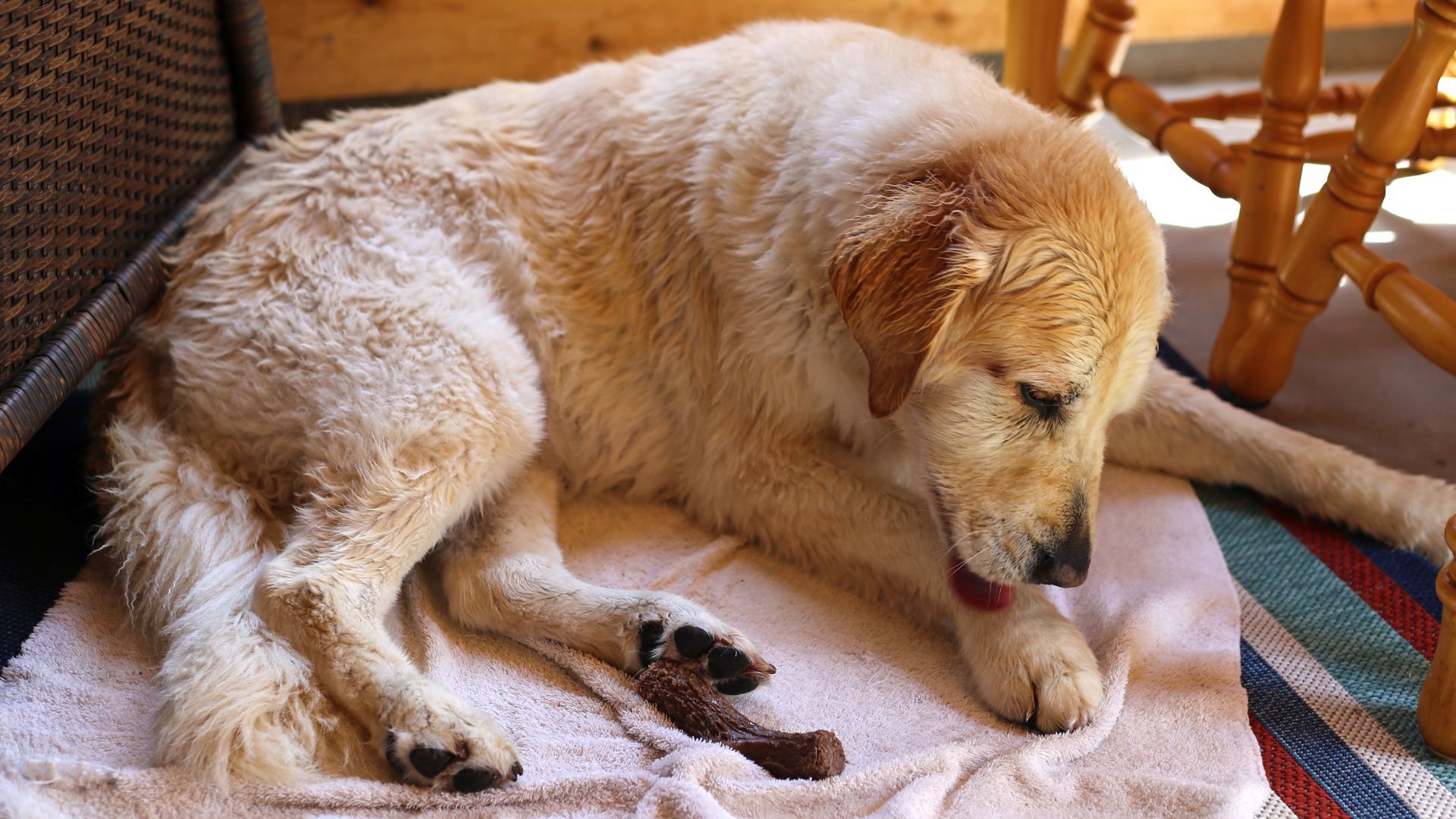
6. Treats and chews
If you use your dog's bed to feed them long-lasting chews or treats, perhaps as part of your training around your own mealtimes or when you have guests over, then there just might be a little bit of yummy food residue left behind. While your dog licks the bed they’ll be enjoying a taste explosion!
What kinds of dog licking is normal?
Licking is a natural behavior for most dogs. As puppies, they will lick their mother’s face to show they’re hungry. When they’re anxious, they may lip-lick, flicking their tongue up over their nose to be able to get more information about the environment. Licking can be a way to show they’re no threat to another dog or person. Licking is obviously also tied to eating - and many new enrichment toys for dogs encourage licking due to its ability to comfort a dog.
When we see a dog licking obsessively, especially when it’s their own body so they might disturb the skin or cause infection, it’s important to get this investigated by your vet. If your dog’s licking suddenly increases - whatever the situation it’s happening in - then you may need help from either your vet or an ethical behaviorist.
Whether licking is normal or not - especially if you share a bedroom with them, your dog’s licking might be driving you to distraction. If you’re trying to work out how to get your dog to sleep later in the morning then getting to the bottom of WHY they’re licking in the first place is going to be your best bet.
What is age-related licking?
If you live with a senior pet, you might see an increase in licking behavior. Age-related licking in dogs can present in various ways, including excessive licking of their own fur, surfaces, objects, or even people. As we’ve discussed, some licking can be a normal pattern of behavior for dogs but if you see an increase in licking behavior or your aging dog licking new items, then it’s worth investigating this with your vet.
An increase in licking for your older dog could be triggered by cognitive decline, anxiety, boredom, or even pain. As a dog ages, they commonly experience physical discomfort from arthritis or dental issues. It’s important to consider all areas of their well being and not just dismiss some new behavior as just ‘getting older’.
Overall, when it comes to licking it’s important to keep an eye on this behavior to make sure that your dog’s emotional and physical wellbeing is being kept on top of. You can find out more in our vet’s guide to excessive licking in dogs.
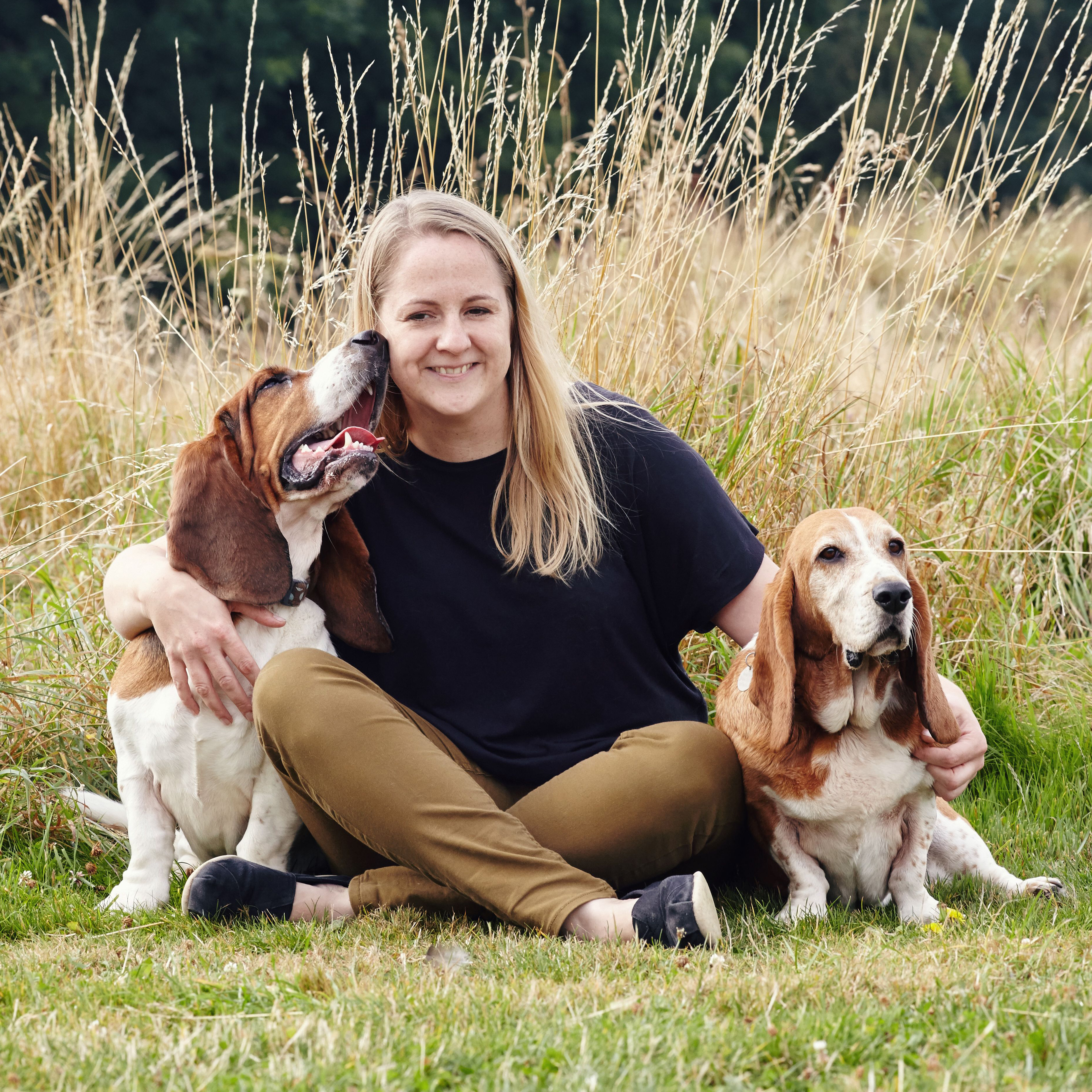
Caroline Wilkinson is a Certified Animal Behaviorist. She is a Full (assessed) Member of the Association of Professional Dog Trainersand INTODogs – as well as a Registered Training Instructor (ABTC). Caroline is also a Certified Real Dog Yoga Practitioner and an Applied Canine Zoopharmacognosist.
As the founder of digital pet coaching service Barket Place, Caroline has a passion for improving connections between human and hound, with a focus on relationships and reduction of stress for canines living in a human world. She helps pet parents, like you, to work through challenges they may be experiencing with their dog's behavior, so that they can get back to the important job of loving their dog.
Caroline writes for Edition Dog Magazine, as well as a number of trusted pet brands. She also speaks around the country – presenting workshops and webinars with a focus on living more mindfully alongside our canine companions. She is also the co-host of chart-topping podcast, ‘Supporting Both Ends of the Lead’ and has spoken about dangerous dogs on BBC Points West and BBC Radio Bristol.
